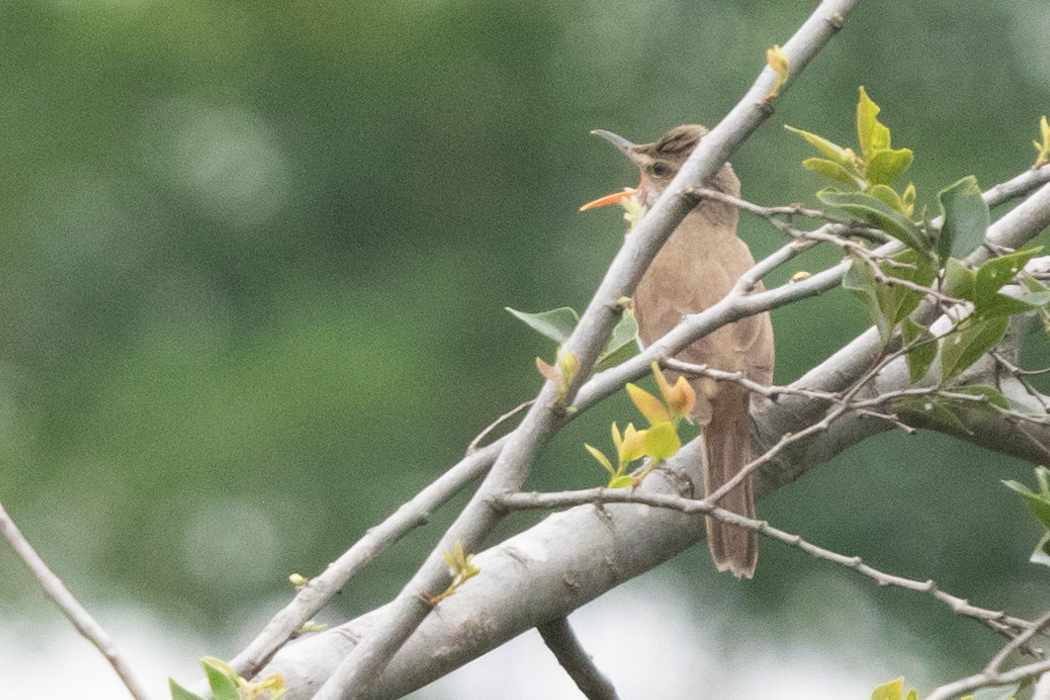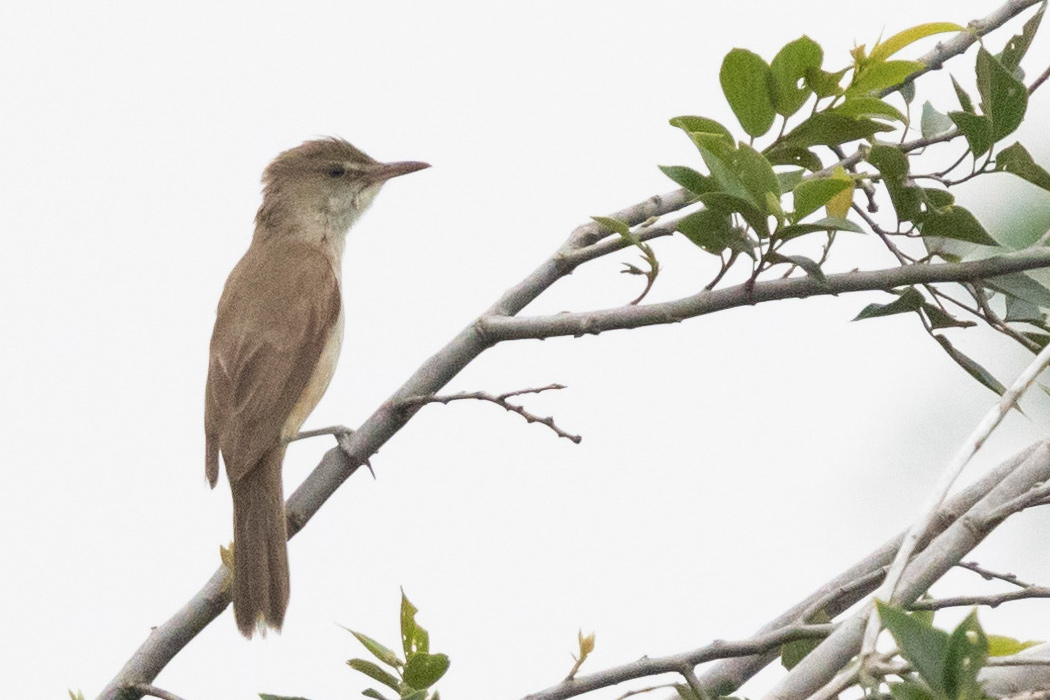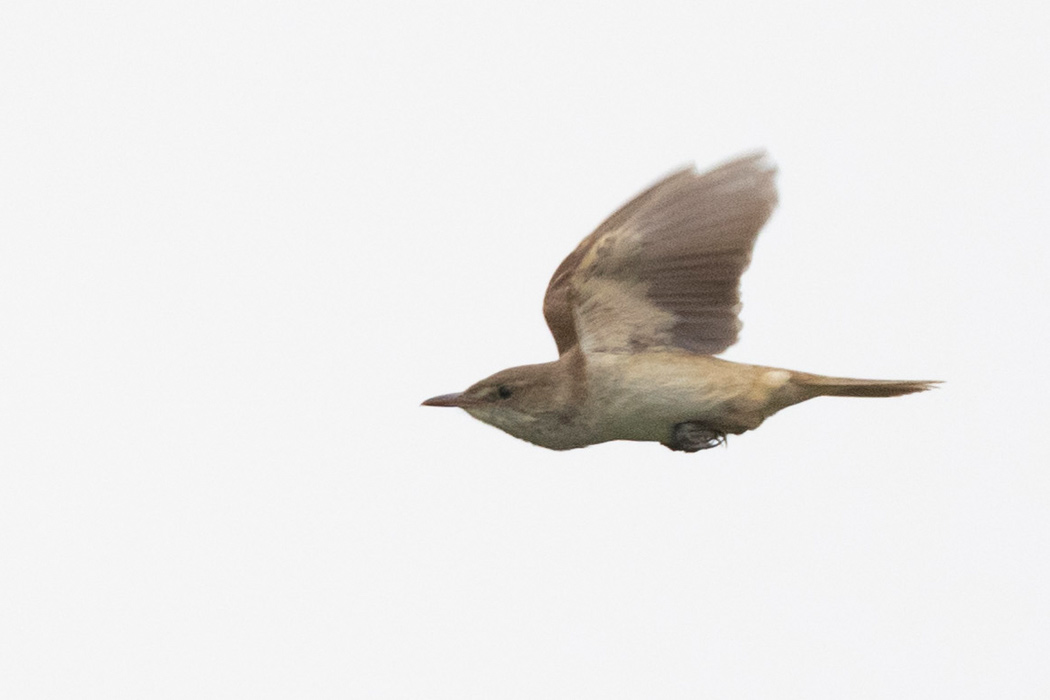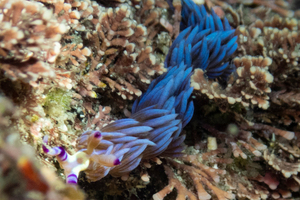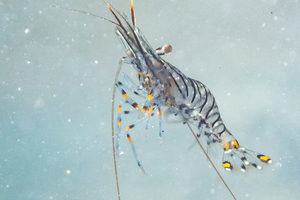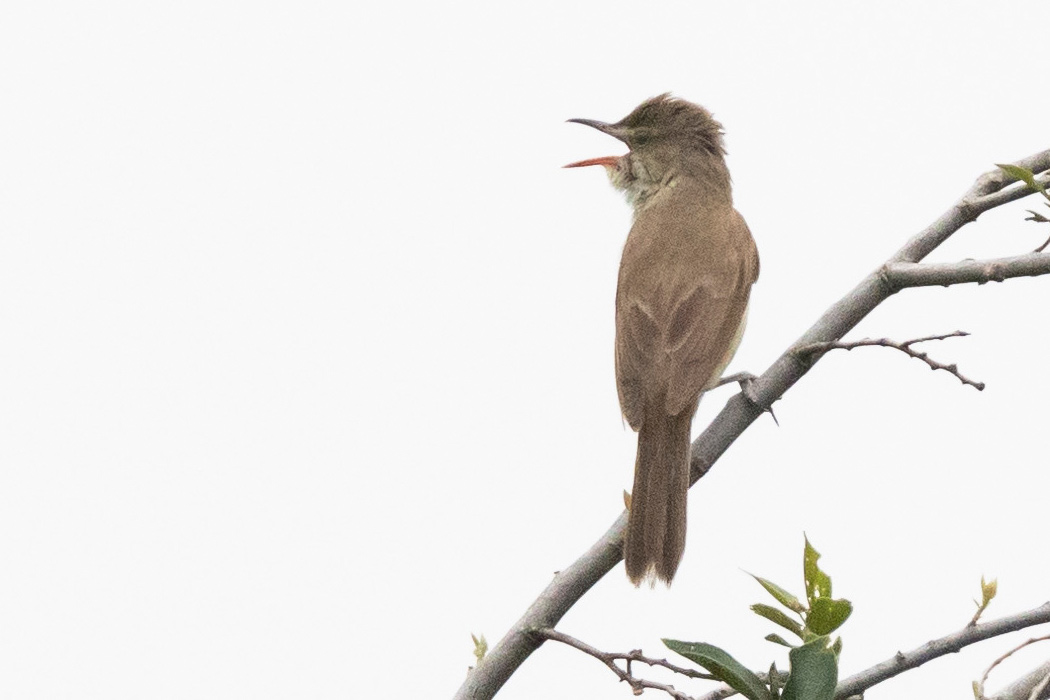
Oriental reed warbler
A sharp voice called "Gyogyoshi" is heard from Yoshihara.
| Scientific name | Acrocephalus orientalis |
| English name | Oriental reed warbler |
| Japanese name | 大葦切 |
| Classification | Aves |
| Classification details | Passeriformes Acrocephalidae |
| Full length | 17-19cm |
| Distribution | Widely distributed in East Asia. |
Characteristics
A bird slightly larger than a sparrow with an olive-colored back and buff-colored belly. The eye line runs along the face, and the feathers on the head may stand on end. The inside of the mouth is red and can be seen when singing loudly.
Calls
The reed warbler's "gyogyoshi" chirping is also used as a summer season word, "kokoko." He speaks quickly and sometimes adds a resounding "pyoi" after the chirping.
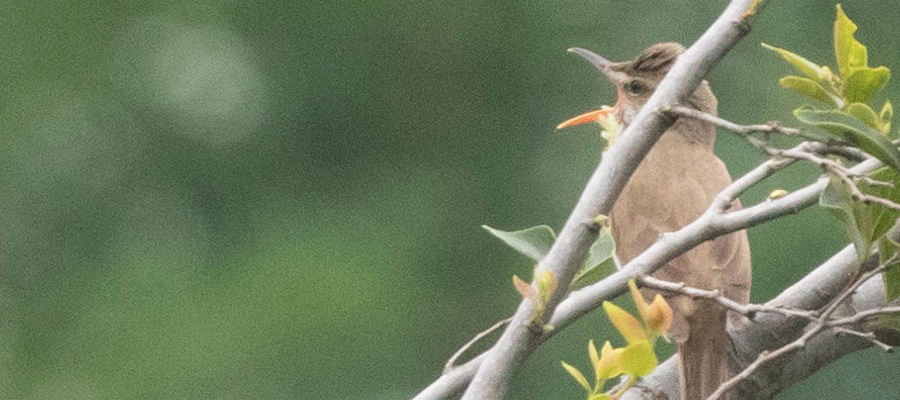
Ecology
In summer, they fly to reed beds near the water to breed. They are known to be polygamous, which is rare among birds, and some males are paired with multiple females. They form territories and chirp loudly. They build nests in the reedbeds and raise their young, but they are sometimes parasitized by cuckoos.
Habitat
I took a picture of them singing in the reed field in the Tama River basin. It seemed to have a strong territory, and it was singing loudly every few minutes on the branch overhanging the river. It moved back and forth between reed fields and branches, but did not leave the one during the hour or so we were observing. The resounding voice is quite loud, but I don't dislike it so much. Especially the high voice at the end of the chirping is interesting.
Pictures
Introducing a picture of Oriental reed warbler.

